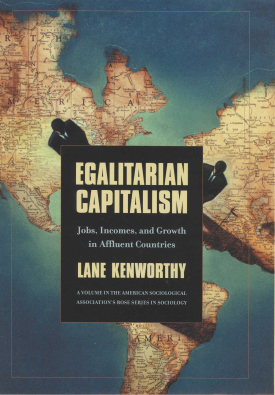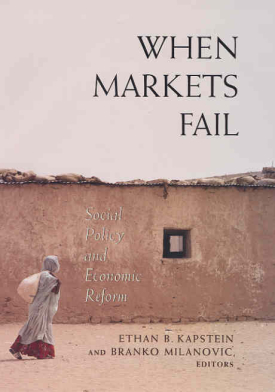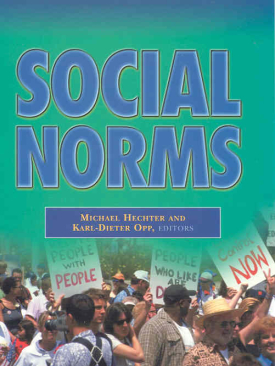
Egalitarian Capitalism
About This Book
A Volume in the American Sociological Association’s Rose Series in Sociology
Declining participation in labor unions, the movement toward a service-based economy, and increased globalization have cast doubt on the extent to which welfare states can continue to stem inequality in market economies over the long-term. Does the new economy render existing models of social assistance obsolete? Do traditional welfare states hamper economic and employment growth, thereby worsening the plight of the poor? Lane Kenworthy offers a rigorous empirical analysis of these questions in Egalitarian Capitalism. The book examines sixteen industrialized countries in North America, Western Europe, and Scandinavia—each with different approaches to assisting the poor—to see how successful each has been in developing its economy and curbing inequality over the past twenty years.
Kenworthy finds that inequality grew in almost all of these countries, from the most progressive to the least. Using simple but powerful statistical tests, he assesses the theory that inequality is necessary to improve economic growth and reduce poverty. He finds no necessary trade-off between equality and economic growth but discovers some evidence that high minimum wages dampen employment growth in private sector services. Kenworthy suggests that without greater private sector employment, public supports may be unable to adequately sustain living standards for the poor. An equitable growth strategy necessitates a balance of policy options: Creating jobs is aided by loose employment regulation, low payroll taxes, and, in some cases, lower real wages for workers at the bottom of the income spectrum. However, high employment is also facilitated by a system that “makes work pay” with earnings subsidies, workplace flexibilities, financial support for those who are between jobs or unable to work, and universal health and child care coverage. Kenworthy suggests that these strategies, though generally presented as mutually exclusive, could be effectively combined to create a robust, fair economy.
Egalitarian Capitalism addresses fundamental questions of national policy with rigorous scholarship and a clarity that makes it accessible to any reader interested in the alleged trade-off between social equity and market efficiency. The book analyzes the viability of traditional welfare regimes and offers sustainable options that can promote egalitarian societies without hampering economic progress.
LANE KENWORTHY is assistant professor of sociology at Emory University.








